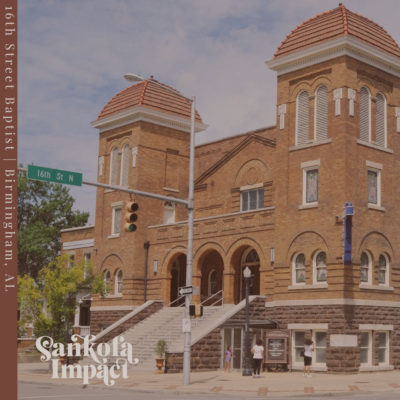It is a bright Sunday morning in Birmingham, Alabama and Black families in their Sunday best make their way over to the local church for services, including Sunday school for the children. The church is the 16th Street Baptist Church, well known to the Black community in Birmingham as a place for both worship and community organizing during the civil rights movement. Tragedy would strike on this early autumn Sunday after a year full of terror in Birmingham.
On September 15th, 1963 the lives of four young girls would be cut short after a bomb went off in the basement of the 16th Street Baptist church. The girls had just completed their Sunday School lesson. Their names were Addie Mae Collins (14), Cynthia Wesley (14), Denise McNair (11), and Carole Robertson (14). Many others were injured in the act of terror, as the community mourned the tragedy.
For context, the city of Birmingham was a highly segregated city in the South. Throughout 1963 there were a series of bombings that were meant to terrorize the Black population in Birmingham. The 16th Street Baptist Church was additionally a place where civil rights activists and leaders would congregate to strategize, organize, and be in community. As tensions rose, the 16th Street Baptist Church became a target for the KKK and white supremacists in the area.
Today the 16th Street Baptist Church is an important stop during our Pilgrimage to the South. The church continues to be a pillar in the community. We proudly meet with our partner in the South, Dr. Carolyn McKinstry, who was there on the day of the bombing. She recounts her experiences and the life of activism and service to others that has come from the historic events that have happened in her life.

